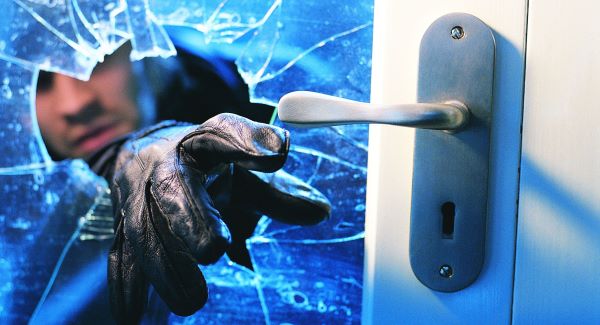Ireland’s shortage of skilled workers see’s 36% of company bosses hire from abroad


Employers are mostly satisfied with Irish graduates but more than a third are still recruiting overseas because of skills shortages.
The findings from a survey of more than 400 Irish and foreign-owned companies were welcomed by the Higher Education Authority, which commissioned the study to help inform changes needed in the third-level sector.
 Three-quarters of companies were confident that graduates have the right workplace and transferable skills, and have knowledge of the relevant subjects or disciplines for their jobs. Despite many public concerns from industry leaders of recent years, more than 80% of firms said they were satisfied with the calibre of science and maths graduates.
Three-quarters of companies were confident that graduates have the right workplace and transferable skills, and have knowledge of the relevant subjects or disciplines for their jobs. Despite many public concerns from industry leaders of recent years, more than 80% of firms said they were satisfied with the calibre of science and maths graduates.
However, half of the companies surveyed want to see more engagement between higher education and industry, and 36% said they have recruited graduates from non-Irish colleges. Many blamed an insufficient number of Irish graduates, particularly in computing, as the main reason for doing so.
Concerns were identified about graduates’ abilities to effectively communicate, especially in writing, and about graduates having the “right attitude”. The report for the HEA was designed with the help of employers’ bodies Ibec, Isme, Small Firms’ Association, Chambers Ireland, and American Chamber of Commerce Ireland.
HEA chairman John Hennessy, also chair of telecoms company Ericsson Ireland, said the results indicate the Irish education system is producing the kind of skilled people needed to underpin future development. “It is particularly welcome that industry recognises this, but we can’t be complacent and it is clear that higher education and industry must find more and better ways for communication and collaboration between the sectors,” said Mr Hennessy.
The findings emerge as future graduates weigh up their options for the completion of CAO forms ahead of the Feb 1 deadline. With thousands likely to apply for college courses by next Sunday to avail of a reduced fee of €25,
the National Association of Principals and Deputy Principals is advising them to pick carefully. “Students should choose courses that best suit their skills and interests, rather than opting for high-points programmes to impress family and peers and even courses that offer the most direct route to today’s jobs market,” said NAPD director Clive Byrne.
“In three or four years, the jobs market could be very different so, unless students are especially interested in specialist courses, a more generalist programme such as humanities or science can keep their options open at this stage.”
Wave of aggravated burglaries across rural Ireland and Donegal targeting the elderly completely obscene


An elderly woman was pushed to the ground while her rural home was ransacked for the second time in two months.
The 78-year-old Donegal pensioner was targeted on Saturday night by three hooded men who fled in the direction of Pettigo, close to the border with Northern Ireland. A spate of aggravated burglaries have been carried out on older people across the county in recent weeks, including on a 96-year-old woman punched and gagged in her home near Buncrana last weekend.
Similar attacks have also happened in Raphoe, Donegal town and Convoy. Sinn Fein’s Padraig MacLochlainn said gangs are putting terror in pensioners across the north west, and appealed to householders not to keep large sums of money in their home. “Clearly, we have different gangs of scumbags who are targeting the most vulnerable of people in their home,” the TD said.
“That’s not a term I like, but if the shoe fits. They are willing to punch a 96-year-old woman and leave her to die, only for she hit a panic alarm button. “It’s causing terror throughout the county.” MacLochlainn said some of the attacks have been carried out by a cross border gang.
“The gardai and the PNSI have a joint responsibility protect us,” he added.Gardai in Ballyshannon have appealed for information on the latest incident, which happened shortly after 10pm in the townland Belault on the outskirts of Pettigo. Three thieves, aged in their 20s, threw the woman to the ground and raided her home before they fled in a car with cash. The victim made her way to the road and flagged down a passing motorist who took her to a neighbour’s house and raised the alarm.
Elsewhere campaign groups and opposition parties said a Government U-turn not to make cuts to the senior alert scheme will come as a relief to older people nationwide. Fianna Fail‘s Barry Cowen said it would have been an incredibly cruel and potentially dangerous cut when rural garda stations are closing. “It would have been completely wrong to take security supports from older people who are already feeling more vulnerable than ever in their homes,” he said.
Burglary Protection Tips for Ireland’s elderly


14 Tips to protect and make your home Burlgar-Proof
Don’t make your home an easy mark for burglars. Take simple steps to keep your home secure: Here are some tips for protecting your home and property from common burglaries:
- Keep doors locked. Whether you are home or leaving the house to run a quick errand, it’s a good practice to keep doors locked.
- Walk around your house, and go room to room to look for easy ways for intruders to gain entry. Opportunity and access can make your home a target.
- Buy timers that automatically switch lamps and radios on and off when you’re not at home. Install a motion detector light over your garage, and at entryways. At night, the lights will go on when you arrive home, or if someone walks up to your house.
- When you move into a new home, have the locks changed immediately. Get a deadbolt lock system. Your installer will provide a lock system for all doors that use the same key.
- Avoid giving copies of your house keys to service providers, such as housekeepers or dog walkers.
- Trim overgrown trees and shrubs around your house that may shield an intruder from view.
- It’s never a good idea to allow a stranger into your home, whether the person is asking you to sign a petition or offering to trim your trees. The person may be trying to “case” your home and return later to steal valuables.
- If you are going on holidays, make sure you stop the newspaper and mail delivery, or ask a trusted neighbor to collect the items, so they do not pile up at your house.
- Add an alarm system that has sensors you can place on windows. If a ground floor window is opened, a siren will go off.
- Elderly people and single women may be perceived as vulnerable by burglars. Don’t make it known to strangers that you live alone.
- Drip solders the screws of window locks, which will prevent a burglar from removing them.
- Consider installing a burglar alarm, whether it’s a simple device with a siren or a monitored system. Amateur burglars seek quick and easy targets. They will not try to break into homes if they think they will be caught. Amateurs look for opportunity — an open window or a door that is ajar.
- Semi-professional burglars case houses. They may drive back and forth for a week, or bicycle through a neighborhood to pick the “right” house — a property that seems vulnerable to break-in or forced entry.
- Burglars don’t waste time. Thefts occur in a matter of minutes, so lock your doors and arm your security system, even if you are leaving the house for a short time or run a quick errand.
Disposable income for Irish household’s rises by 2.2% for third Quarter of 2012


Irish households’ disposable income rose by 2.2 per cent in the third quarter of 2012, when compared with the same period in 2011.
This was an increase of €487 million, according to quarterly institutional sector accounts published today by the Central Statistics Office. Household spending climbed by €127 million in the third quarter when compared with the same period in 2011.
However, spending levels in the third quarter of 2012 were lower than they had been during the previous six months. The institutional sector accounts, which brings together information on the activities of households, businesses and the Government, show that the gross amount of household savings was €11.92 billion for the first three quarters of 2012.
This is more than the €9.3 billion of total savings recorded during 2011. The derived gross savings ratio increased by 14.5 per cent in the second quarter to 16 per cent in the third quarter last year. This ratio expresses household savings as a percentage of gross disposable household income.
Meanwhile, Government borrowing has fallen from €10.4 billion in third quarter 2011 to €5 billion in the same period in 2012. This represents a reduction of 52 per cent, in net borrowing. Meanwhile an Irish survey finds:
Irish peoples attitudes to saving getting worse


Some 48 per cent of Irish people are not putting any money aside for emergencies or unforeseen circumstances. Irish consumers are becoming less optimistic about their personal finances, with some 48 per cent of people not putting any money aside for emergencies or unforeseen circumstances.
This figure has increased by 6 per cent since November, when some 42 per cent of people were not saving, according to the latest Nationwide UK (Ireland) Savings Index.
The savings index fell from 98 to 81 in December, the lowest ever level since the index’s inception in April 2010, as increased negative sentiment towards the economic environment discouraged saving.
Some 65 per cent of people believe that they are saving less than they should while only 13 per cent say they are saving more than they think they should. A record 60 per cent of Irish people said government policy discourages saving.
The environment for savers has become more negative, according to Brendan Synnott, Managing Director of Nationwide UK (Ireland). “During 2012 people have found it increasingly difficult to save while at the same time, deposit interest rates have fallen thereby reducing their return for saving.”
Ireland’s health inflation third-lowest in the EU’


Ireland recorded the third-lowest rate of inflation in the health category in the EU in November, according to Minister for Health Dr James Reilly. Greece and Portugal were the countries that recorded lower figures, he revealed.




The type of prices included in the health category included medical products, appliances and equipment, hospital charges and outpatient services supplied by doctors, dentists, opticians, physiotherapists and practitioners of alternative and complementary medicine.
The Harmonised Index of Consumer Prices (HICP) for November 2012 indicated that Ireland had the second-lowest inflation rate in healthcare costs in the EU, behind the Netherlands, over the past six years. Figures for the UK are not available, but it is normally slightly better than Ireland, which would indicate that Ireland has the third-lowest rate.
The HICP is based on the Consumer Price Index (CPI) survey, which is designed to measure the change in the average level of prices (inclusive of all indirect taxes) paid for consumer goods and services by all private households in the country and by foreign tourists holidaying in Ireland.
Therefore it did not reflect price changes in the cost to the HSE of providing treatment, Dr Reilly said in response to Dáil questioning prior to the Christmas break.
No comments:
Post a Comment